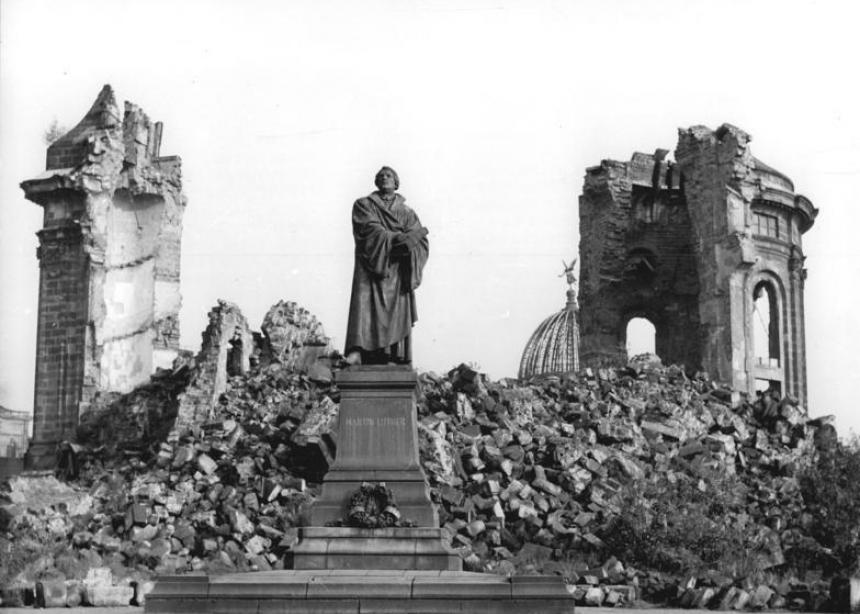A heartfelt desire for peace and reconciliation inspired church-goers in Europe to make a gift to PeaceBuilders Community Inc. (PBCI), a ministry in the Philippines. The gift came from donations made at a commemoration event in Dresden, Germany.
During World War II, German bombers tore apart the British city of Coventry. In retaliation, British, Canadian and U.S. bombers destroyed the German city of Dresden. Following the war’s end, the two demolished cities were “twinned” in an effort to foster reconciliation. Seventy years later, several ecumenical services commemorated Dresden’s destruction and brought together people from both countries.
Services were held at Frauenkirche, a Lutheran church rebuilt after its destruction in 1945, and Kreuzkirche, Dresden’s most central Lutheran church.
When the ecumenical planning committee requested suggestions for peace stories to share during the services—and a potential ministry to support with donation—Alexander Neufeld, pastor of Evangelisch-mennonitische Freikirche Dresden proposed PeaceBuilders Community Inc. (PBCI). PBCI is a ministry in the Philippines that is supported by Mennonite Church Canada and directed by Witness Workers Dann and Joji Pantoja.
Roughly $2,100 CAD (1,600 EUR) was raised for donation during an evening service at Kreuzkirche.
“This is so encouraging! Praise be to God,” Joji Pantoja exclaimed upon hearing of the donation.
Through their assignment in the Philippines, the Pantojas strive to bring an attitude of peacebuilding to an area wrestling with the impact of a history of violence and colonialism. They have set an objective to train Peace and Reconciliation teams in each of 81 Philippine provinces by the year 2020. There are already 25 PAR teams in operation.
Many dignitaries attended the Feb 13, 2015 services including the Lord Mayor of Coventry, England, the German President and the Archbishop of Canterbury.
“We have had a great, inspiring and encouraging story and a worthwhile destination for the offering,” reported Neufeld in an email to Mennonite Church Canada. He added that the commemoration service demonstrated a strong sense of responsibility for peacemaking in a world that still experiences conflict and war.
Before the service, people from across Europe gathered to form a human chain around the center of Dresden as a symbol of solidarity and reconciliation.

The city of Dresden, including the Dresden Frauenkirche, was destroyed in WWII. (Photo by Gise Löwe 1958, used by permission of Creative Commons License 3.0)







Add new comment
Canadian Mennonite invites comments and encourages constructive discussion about our content. Actual full names (first and last) are required. Comments are moderated and may be edited. They will not appear online until approved and will be posted during business hours. Some comments may be reproduced in print.